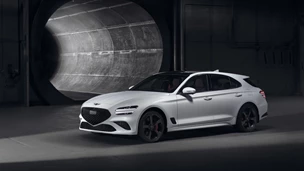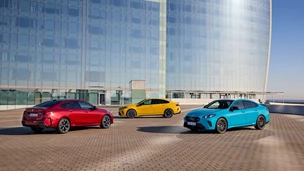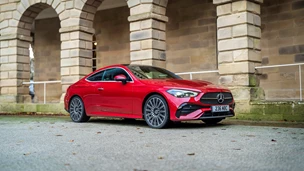The latest SEAT Leon demonstrates exactly what the Spanish carmaker is capable of. Made up of Volkswagen parts, thanks to being part of the VW Group, it’s a great-looking car that has made rivals such as the Ford Focus and Volkswagen Golf sit up and take notice.
Sitting on the same MQB platform as the seventh-generation Golf, the Leon offers plenty of the same options, be it engines or interior niceties.
But just because it shares a dressing room with VW Golf, does that mean it is just as good?
Performance
From top to bottom, the Leon’s engine range offers the same as the VW Golf, including the entry-level 1.2-litre petrol with 104bhp and the frugal 1.6-litre TDI diesel unit, known in the SEAT range as the Ecomotive variant.
The 1.6-litre TDI Ecomotive engine we tested produces 109bhp and can complete the zero to 62mph sprint in 10.4 seconds. This was mated to a smooth six-speed manual gearbox. As it is a diesel, the 1.6-litre has a good pull to it, especially when setting off at the lights.
If you want something a bit racier then there is a 177bhp 1.8-litre petrol which reaches 62mph from a standing start in just 7.5 seconds. This trumps the Ford Focus’ closest competing engine in its standard model line-up, which is the 1.6-litre Ti-VCT petrol producing 123bhp.
Ride and Handling
The first thing you will notice about the Leon is the weighting behind the wheel, which is perfectly judged, allowing for easy manoeuvring without being too light.
The first thing you will notice about the Leon is the weighting behind the wheel, which is perfectly judged, allowing for easy manoeuvring without being too light. Feedback is decent as well, although it can lack a little when cornering sharply. It still has a little work to do until it meets the overall enjoyment of something like the Ford Focus. Still, now that the new Leon offers a wider track than the previous generation, it manages to hold the road far better in corners than its predecessor and also offers little body roll. It does, however, feel a little unsettled over potholes. On the upside, cabin noise is impressively mute, even when you are cruising at motorway speeds.
Interior and Equipment
Back in 2008 the SEAT Leon was the victory car for Yvan Muller in the World Touring Car Championship.
Not to go on about similarities to the Golf, but sitting in the Leon is a lot like sitting in, yes you guessed it, the Golf. This means you get the same no-nonsense infotainment layout with a five-inch touch screen dominating the dashboard. Options on this system, like MENU, come to life when you put your hand close to it, thanks to a sensor. Interior quality is excellent and there are plenty of soft-touch materials dotted around. Standard kit includes air con, Bluetooth, CD player and front electric windows. Many will opt for the mid-range SE trim which comes with leather highlights on the steering wheel and gear knob, cruise control, hill hold control, 16-inch ‘Design’ alloy wheels, all-round electric windows and chrome detailing on dashboard. Some optional extras on the model we tested included a convenience pack with rain-sensing wipers (£150), rear parking sensors (£265) and a navigation system (£745). The navigation system is a must. Not only does it do exactly what is says on the tin, but it comes with a function that allows you to follow map guidance details – such as ‘veer to the left’ – via a small display behind the steering wheel. A great feature to have when trying to keep your eyes on the road. In the front or back, the Leon is great when it comes to practicality, from its knee room to its cubby holes. It is reassuring to see that the chiselled exterior of the Leon does not affect rear space. One small criticism about visibility however is that the rear window is quite small due to large C-pillars, meaning there is quite an annoying blind spot when you are on the motorway. Boot space in the Leon stands at 380 litres with the seats up and 1,210 with the seats down, which means the Leon is in the top tier when it comes to competitiveness.
Cost
The lack of the VW badge means the Leon probably won’t be as good at holding its value.
Although the 1.6-litre TDI Ecomotive unit packs a decent oomph at 109bhp, it emits as little as 87g/km and returns an average of around 86mpg. Realistically, expect to get around 70mpg. This is still very impressive if you plan on clocking up motorway miles. The sub 87g/km CO2 figure means the Leon ducks road tax as well. Regardless of how similar the Leon is to the Golf, it does not carry the prestigious VW badge on its nose, fortunately this means the Leon cost a large chunk less than the Golf. Unfortunately however, the lack of the VW badge means the Leon probably won’t be as good at holding its value.
Our Verdict
Is the SEAT Leon as good as the Golf? Well, when it comes to equipment and frugality, it certainly is. If you go for the more expensive Golf you are essentially paying for added driving dynamics and the prestige of the VW badge, which pretty much pays for itself when it comes to resale time. Plus, there is no denying that the Leon has a bit of extra razzmatazz when it comes to its curvy Spanish looks. Ultimately, if you are after a great hatchback that avoids the samey design of German carmakers like VW or Audi, then the SEAT Leon is the perfect choice.




